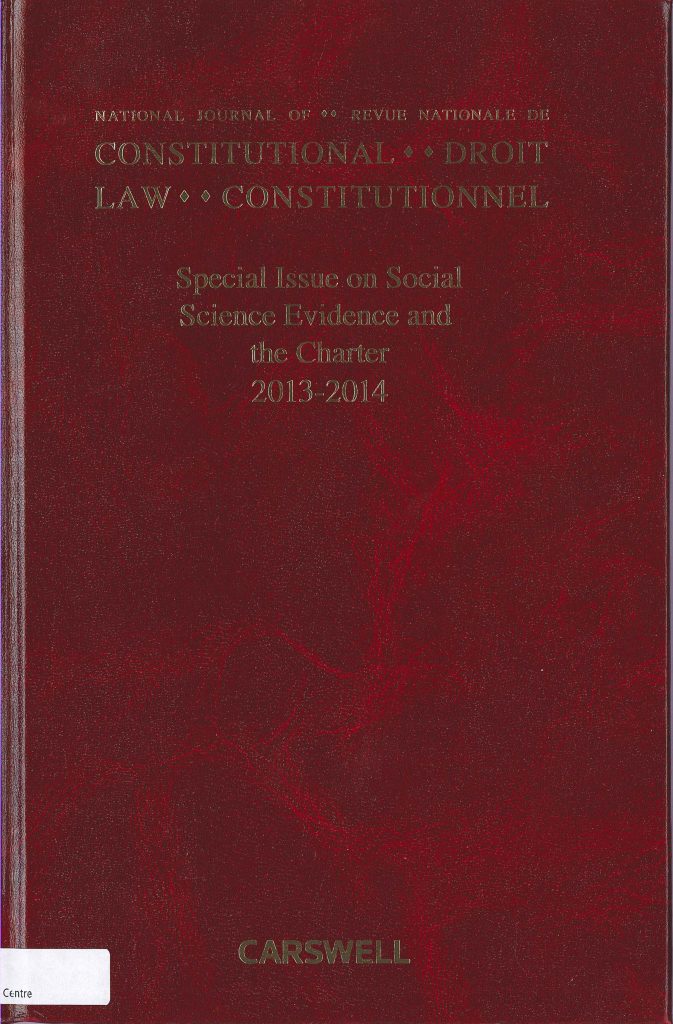Paper – Law and Ordered C.H.A.O.S.: Social Science Methodology, and the Charter Claims of Persons with Disabilities

ARCH Co-Authors article published in a special issue of the National Journal of Constitutional Law focused on Social Science Evidence and the Charter, 2013.
Citation: John David Lee, C. Tess Sheldon and Roberto Lattanzio, “Law and Ordered C.H.A.O.S.: Social Science Methodology, and the Charter Claims of Persons with Disabilities” (2013) 32 NJCL 1 at 61.
This paper aims to provide members of the Canadian bench and bar with a primer on social science and research design and methodology. We develop a simple yet reasonably comprehensive prima facie mnemonic framework of analysis entitled ‘C.H.A.O.S’ – for ‘Contemplative,’ ‘Hypotheses,’ ‘Alternatives,’ ‘Operationalize,’ and ‘Sample.’ This proposed model offers a means of digesting, analyzing, and focusing lines of scientific analysis by developing a systematic framework to assess and understand the role of social scientific methodology within Canadian litigation, including claims pursuant to the Canadian Charter of Rights and Freedoms.
The Paper also considers the barriers experienced by persons with disabilities in relation to their access to social science evidence in support of their Charter claims. The limited availability and funding for such evidence has a disproportionate impact on Charter claimants with disabilities. If an excessively large amount of expensive social science evidence becomes an essential dimension of a successful Charter claim, otherwise meritorious claims from persons with disabilities are effectively precluded from succeeding. In that way, Charter rights are enshrined in form, but not substance. The authors suggest that the proposed mode may provide assistance to all parties in developing and assessing social science evidentiary records.
